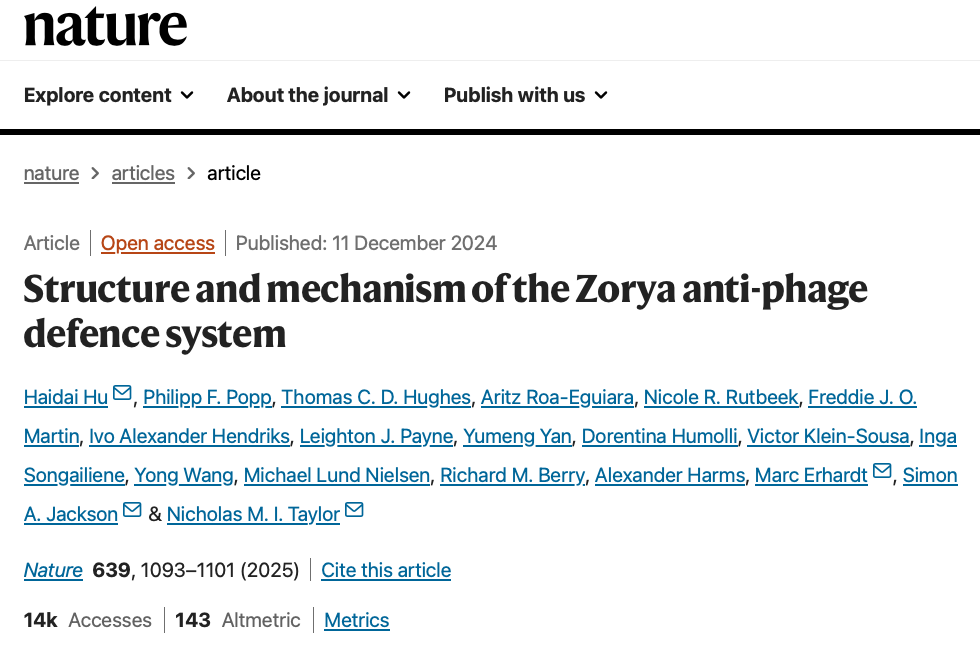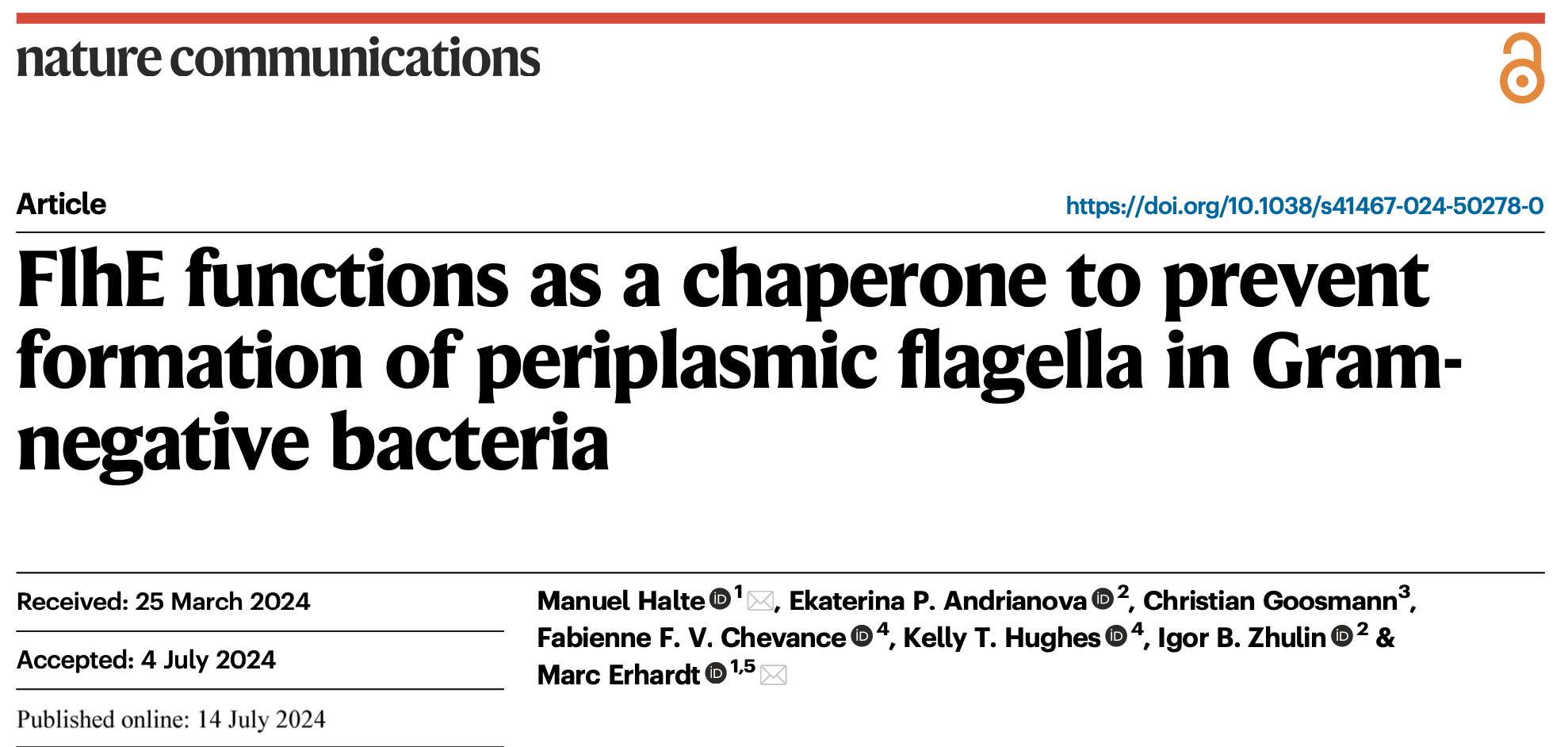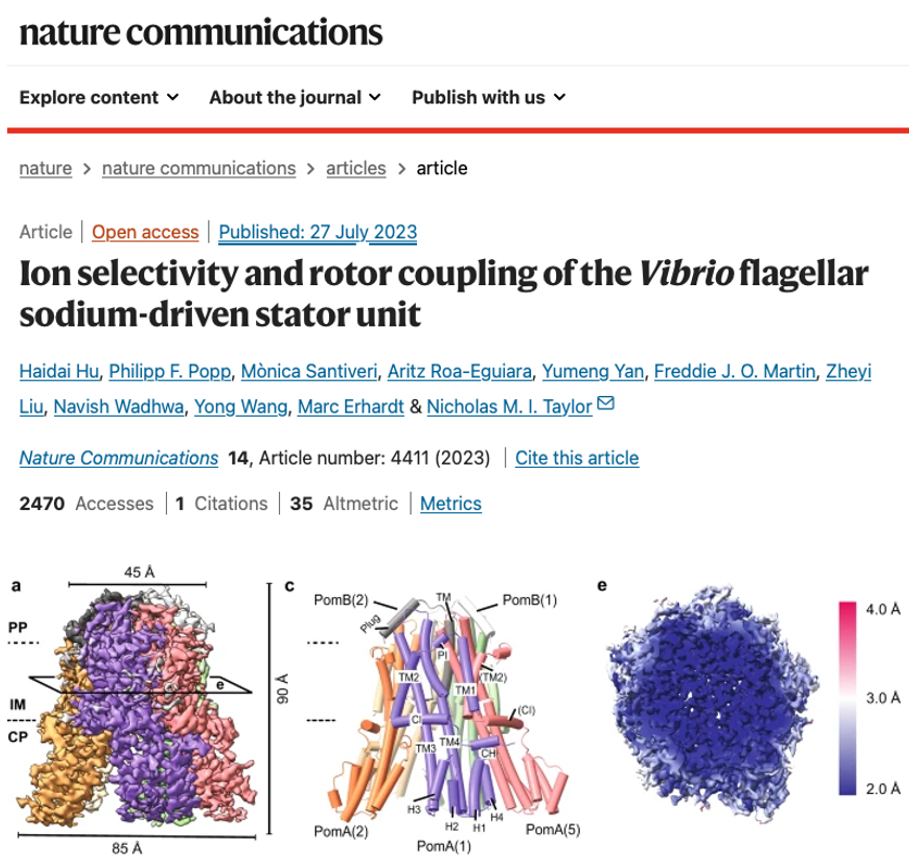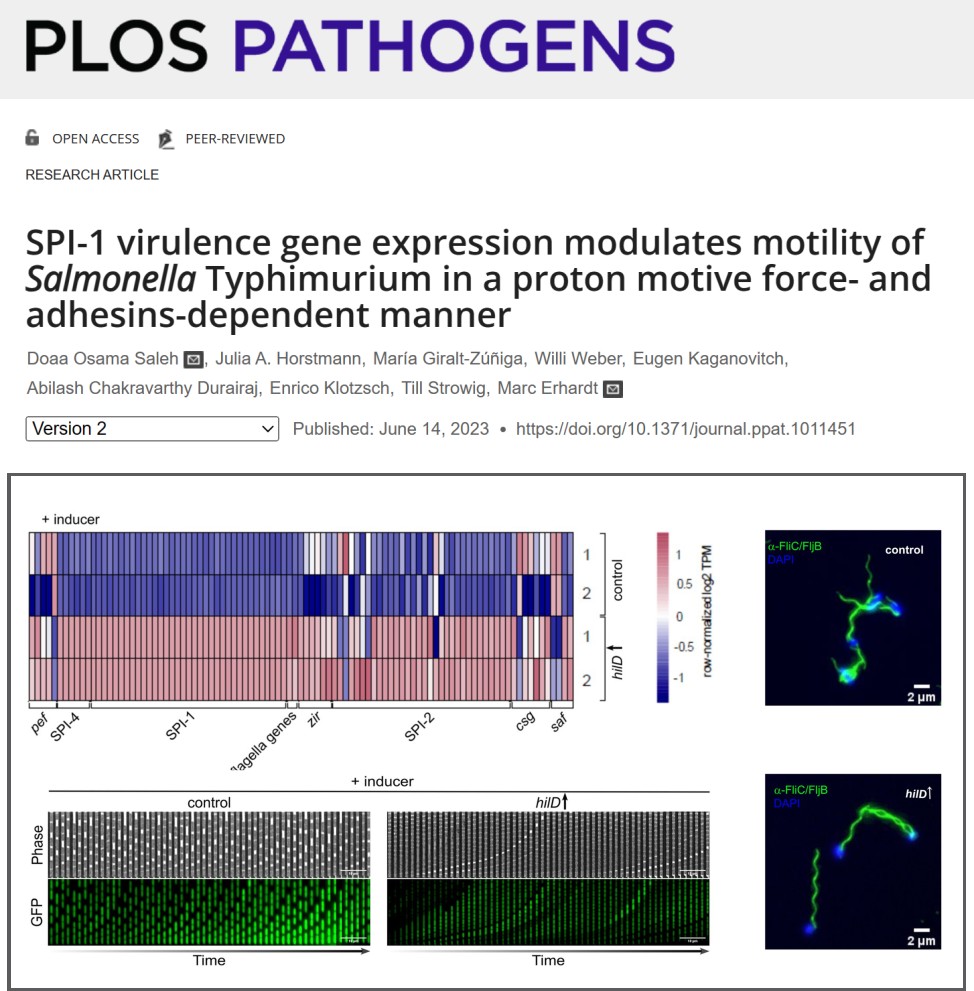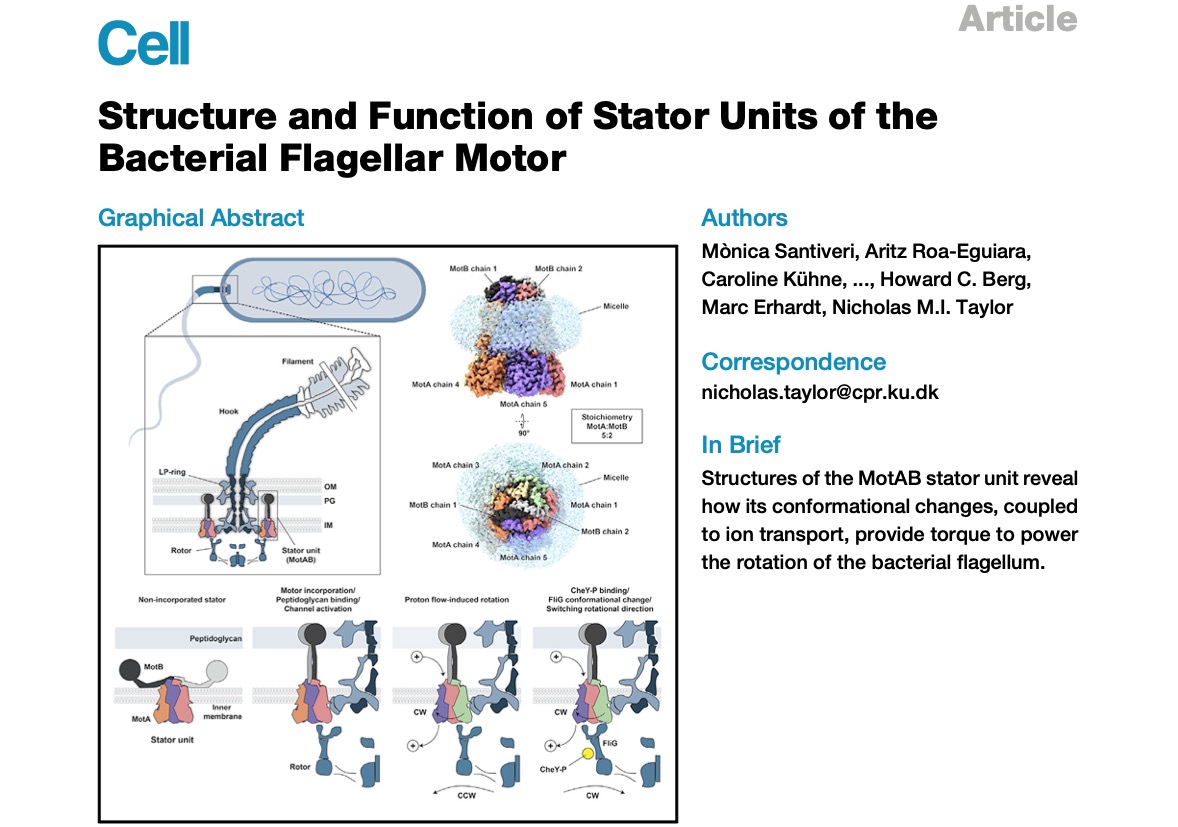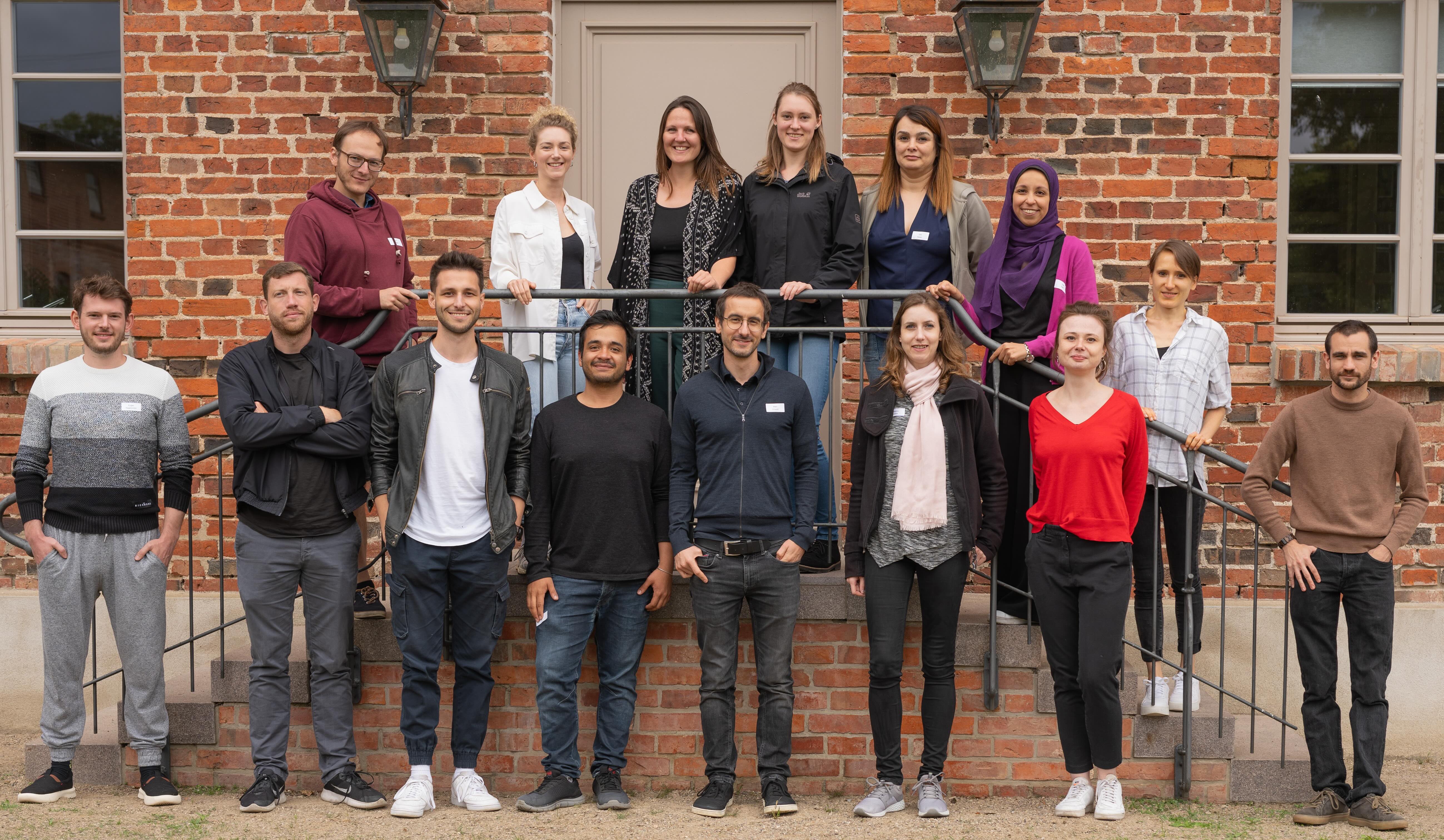Research
Molecular Microbiology
Life has evolved diverse protein machines and bacteria provide many fascinating examples.
Flagella are the primary organelles of motility in bacteria and enable movement towards nutrients and away from harmful substances, a process known as chemotaxis. Flagella-mediated motility is also important for many pathogens – including Salmonella enterica – and allows the bacteria to reach the site of infection, facilitate host-pathogen interactions, and promote biofilm formation. The bacterial flagellum is by far the most prominent extracellular structure known in bacteria and made through self-assembly of several tens of thousand individual building blocks. However, many questions concerning the regulation, organization and assembly of this remarkably complex motility organelle remain poorly understood. We use a combination of genetic engineering, biochemistry and fluorescent microscopy techniques to understand the genetic regulation, self-assembly and protein export mechanisms of this fascinating nanomachine.
Lab Tour
Recent publications
Recent news
August 29, 2024
Marc Erhardt and Philipp Popp receive funding for two PhD researchers as part of the SPP 2330 "New concepts in prokaryotic virus-host interactions". The project aims to investigate fundamental immune mechanisms of bacteria against bacteriophages through a combination of live-cell microscopy, biochemistry, and bacterial genetics.
September 26, 2023
Dr. Gita Naseri (Emmanuelle Charpentier’s laboratory at the (MPUSP) and Marc Erhardt’s laboratory at Humboldt-Universität zu Berlin has been awarded a six-year grant by the Emmy Noether Program of the German Research Foundation. Continue reading!
Dezember 18, 2019
ERC consolidator grant for BacNanoMachine from the European Research Council! In the project BacNanoMachine, we aim to obtain a holistic understanding of the underlying principles that allow bacteria to control and coordinate the simultaneous self- assembly processes of several multi-component nanomachines within a single cell. Continue reading!
